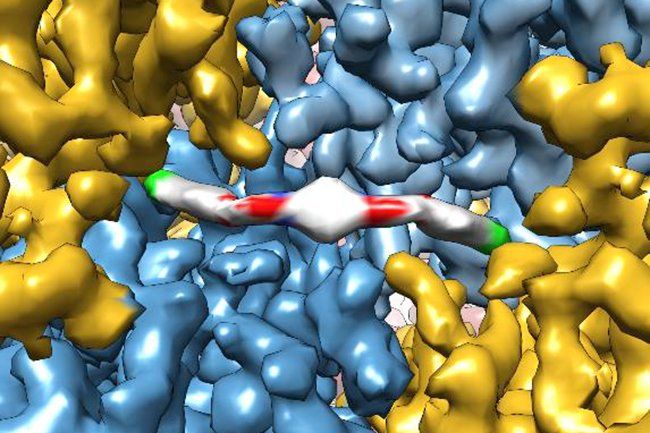Restoring Cognition, T-Cell Function : ISRIB-Generated Age-Reversal
"ISRIB's extremely rapid effects show for the first time that a significant component of age-related cognitive losses may be caused by a kind of reversible physiological 'blockage' rather than any more permanent degradation.""We've seen how ISRIB restores cognition in animals with traumatic brain injury, which in many ways is like a sped-up version of age-related cognitive decline. It may seen like a crazy idea, but asking whether the drug could reverse symptoms of aging itself was just a logical next step.""This was very exciting to me because we know that aging has a profound and persistent effect on T- cells and that these changes can affect brain function in the hippocampus.""At the moment, this is just an interesting observation, but it gives us a very exciting set of biological puzzles to solve."Susanna Rosi, professor, departments of neurological surgery/physical therapy and rehabilitation science, University of California, San Francisco

"The data suggest that the aged brain has not permanently lost essential cognitive capacities, as was commonly assumed, but rather that these cognitive resources are still there but have been somehow blocked, trapped by a vicious cycle of cellular stress."Our work with ISRIB demonstrates a way to break that cycle and restore cognitive abilities that have become walled off over time."Peter Walter, professor, department of biochemistry and biophysicas, Howard Hughes Medical Institute investigator, UCSF
 |
| ISRIB molecule Wikipedia |
ISRIB, a drug that has demonstrated previously its capability to restore memory function following traumatic brain injury, reverse cognitive impairment from Down Syndrome and to improve cognition in healthy animals, was discovered in 2013 in the Walter laboratory. These latest experiments with the drug gives researchers hope that it may indeed be a modern-day 'fountain of youth'. The drug has the capacity to reboot a cell's protein production once it has been lifted by a mechanism known as the integrated stress response (ISR).
This is a natural bodily response meant to act as a safety measure whose intention is the prevention of protein synthesis in malfunctioning (or mutated) cells. This natural response has the potential to be the cause of serious problems, such as cognitive decline, should it remain fixed in the "on" position. Since ISRIB (ISR InhiBitor) was proven to be effective in treating traumatic brain injury, it occurred to researchers that the drug could conceivably be capable of stopping the effects of aging, as well.
In a bid to test their theory the researchers took older mice and trained them how to make an escape from a watery maze through a hidden platform. This was a task manifestly difficult to achieve for older animals, but the mice that were given ISRIB during the training procedure were seen to perform on the test as well as their younger counterparts, and far better than those aged test mice to whom the drug was withheld. In a further experiment to test the longevity of the drug's effects, researchers tested the mice again weeks later, discovering they continued to perform as well as younger mice, while those who were not given the drug experienced the same initial struggle.
Exactly how the ISR interferes with cognition and how long the ISRIB effects last, remains under study by the team who are planning as well to explore how the drug succeeds in altering the effects of aging on the immune system's T-cells in the hope that the answers may present new avenues for treating medical conditions from Alzheimer's to diabetes. The study was published by eLife, highlighting how it was that the University of California, San Francisco researchers managed to restore youthful cognitive function and reinvigorate the brain and immune cells of older mice with a few doses of the ISRIB drug.
 |
| Cryo-electron microscope: ISRIB molecule. Image Adam Frost lab |
"To understand how ISRIB might be improving brain function, the researchers studied the activity and anatomy of cells in the hippocampus, a brain region with a key role in learning and memory, just one day after giving animals a single dose of ISRIB.""They found that common signatures of neuronal aging disappeared literally overnight: neurons' electrical activity became more sprightly and responsive to stimulation, and cells showed more robust connectivity with cells around them while also showing an ability to form stable connections with one another usually only seen in younger mice."University of California, San Francisco

Labels: Bioscience, Cellular Stress, Cognition Impairment, ISRIB, Research, UCSF

0 Comments:
Post a Comment
<< Home